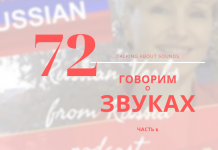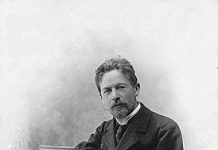Some people like talking about work and some people don’t. But whether you like it or not, there is no doubt that people will ask you about your job. So, you’d better be ready for talking about work in Russian. And probably there will be situations when you will want to tell about your job in Russian. Therefore, it’s necessary to know how to do it.
So, what are the most common questions you should be ready for, if someone will be talking with you about work in Russian?
Где вы работаете? (Where do you work?)
To be honest, I prefer the question “Чем вы занимаетесь?”, just because there are people who don’t have a job and don’t like this direct “Где вы работаете?” question.
Кем вы работаете? (What’s your job?)
Вам нравится ваша работа? (Do you like your job?)
Почему вы выбрали эту профессию? =Почему вы стали + instrumental (Why did you choose this job? Why did you become + [the name of your profession]?) For example: Почему вы стали программистом?
Чем вы занимаетесь на работе? Что вы делаете на работе? (What’s your day-to-day routine like?)
Вы давно работаете + где (prepositional) / кем (insrumental)? (How long have you been working + [your company] / [the name of your job]? For example: Вы давно работаете в этой фирме? Вы давно работаете программистом?
Когда начинается (starts) и заканчивается (ends) ваш рабочий день (your workday)? Со скольки (since when) и до скольки (until what time) вы обычно работаете [каждый день]?
(I know that grammatically this question is not correct; the official grammar tells us to ask “со скОльких и до скОльких”, but nobody say this way).
And what about the answers?
It’s a good idea to revise the instrumental case here, because we use instrumental after РАБОТАТЬ, СТАТЬ (to become), ИНТЕРЕСОВАТЬСЯ, ЗАНИМАТЬСЯ (to do, to deal with, to engage in, to work on) when talking about jobs, professions and occupations.
Я работаю + кем? (instrumental). Я + кто? (nominative).
That’s why I recommend you to practice with this video lesson:
For example,
Я работаю преподавателем (I work as a teacher). Я преподаватель.
Кто он? Кем он работает? (Actually this is the same question)
Чем он занимается? (This question could have the same meaning as “Кем он работает?”, but could also be a questions about your duties).
Он менеджер по продажам (He’s a sales manager).
You can also answer: Он работает менеджером по продажам. Он занимается продажами (He works in sales).
Or, to be more specific: Он занимается продажей компьютеров.
Another example: Он продавец. Он работает в магазине.
Она работает в финансовой компании. Она занимается финансами (She works in finance).
Он работает бухгалтером в маленькой фирме (He is an accountant for a small company).
(Notice: we don’t say “для фирмы”, we say “в фирме” and use prepositional here.)
Она инженер. Она работает инженером на заводе. (Где? – на заводе; prepositional)
Он директор завода. (завода – of the plant; genitive)
Он бизнесмен. Он занимается бизнесом.
You can practice using instrumental for jobs HERE
I found a picture with the names of some jobs in Russian, so you can have a look and probably find your job here:

Чем занимаются эти люди, люди этих профессий? Пожарный тушит пожары (тушить пожары, to put out fires), фотограф фотографирует (фотографировать, to make photos), повар готовит, врач лечит (лечить), строитель строит (строить), учитель учит, продавец продаёт (продавать) что-то и так далее.
If people want to ask you about your day-to-day routine at work, they’ll probably ask something like:
А чем вы занимаетесь на работе?
And you can answer using the verb which describes what you do at work, or you can just use the verb ЗАНИМАТЬСЯ + instrumental noun.
Я учу студентов. Я преподаю русский язык иностранцам.
Они делают новый проект. Они занимаются новым проектом.
In my next posts, I’ll tell you more on talking about work in Russian (how we talk about searching a job, how to speak on an interview and so on). For now, you can try answering these questions (please don’t worry about making mistakes):
When talking about a job, we often discuss how people choose (выбирают) their job. If you want to learn more about the verb ВЫБИРАТЬ – ВЫБРАТЬ, you can listen to my podcast here.


























